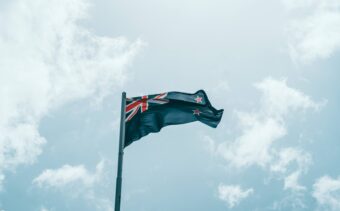
Over the last few years, the financial services landscape in Australia has seen significant change. However, one constant is the strong emphasis on anti-money laundering and combatting the financing of terrorism (AML/CFT) by the regulators.

Over the last few years, the financial services landscape in Australia has seen significant change. However, one constant is the strong emphasis on anti-money laundering and combatting the financing of terrorism (AML/CFT) by the regulators.

Under the AML/CTF Act 2006, designated businesses must meet four key obligations that reflect the private sector obligations set out by the Financial Action Task Force (FATF).

As a long-term member of the Financial Action Task Force (FATF), Australia’s anti-money laundering and combatting the financing of terrorism (AML/CFT) regulatory framework seeks to align with the recommendations laid out by the agency.

To remain compliant and avoid financial penalties, FinTechs must know and understand the parameters of their reporting responsibilities. This infographic provides a checklist of the reporting obligations FinTechs must meet under Australian AML/CFT legislation and regulation.

Controlling risk is critical to the overall success of a financial institution. This infographic unpacks what an EWRA looks like and how Australian FinTechs can conduct them consistently across their business and over time.

Is Cryptocurrency Legal in Malaysia? Cryptocurrencies: Not legal tender Cryptocurrency exchanges: Legal, must register with the Malaysian Securities Commission Although cryptocurrencies are legal in Malaysia, they are not considered legal tender. The country’s central bank, Bank Negra Malaysia, has issued […]

Defense think tank RUSI is warning that a lack of guidance around proliferation finance (PF) and designated non-financial businesses and professions (DNFBPs) is increasing the risk of North Korea evading targeted sanctions. In a new report, it recommends organizations and […]

Japan is an influential regional and global power and participates in a range of trading relationships with partners across the world. Japan uses that status to achieve political and economic goals, often issuing economic sanctions against other countries in response […]

As it seeks to exercise political power on a global scale, China is increasingly using its economic sanctions program to achieve foreign policy and economic objectives. China sanctions activity reflects Beijing’s desire to respond to Western sanctions – in particular […]

New Zealand has an advanced, highly globalized economy and relies on a wide range of international trading partners in Australia, East Asia, North America, and the European Union. In order to protect its economy and maintain public confidence in its […]

The Asia Pacific Group on Money Laundering (APG) is an inter-governmental organization dedicated to implementing international standards for anti-money laundering and combatting the financing of terrorism (AML/CFT) in the Asia Pacific (APAC) region. How Does the AGP Work? The APG […]

Australia’s human rights framework is built on common law and on its constitution which sets out certain universal rights for individuals within Australia and around the world. Human rights legislation in the country varies at the state and Federal levels […]